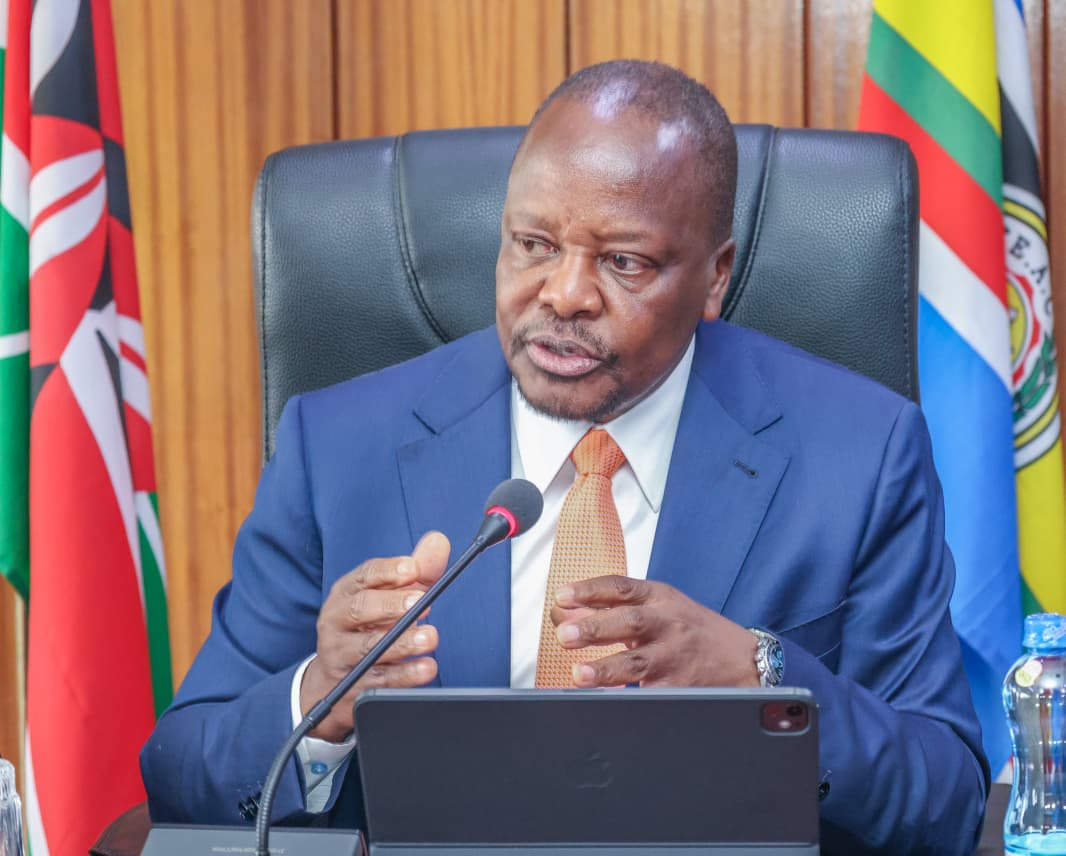CS Kagwe says Kenya imports five billion eggs annually, urges farmers to boost local production

CS Kagwe emphasised that achieving food security depends on research, data, and science-based farming practices.
Kenya imports five billion eggs every year to meet local demand, a practice Agriculture Cabinet Secretary Mutahi Kagwe has described as “unsustainable.”
The country currently produces four billion eggs annually against a national demand of nine billion, leaving a significant deficit that has made reliance on imports inevitable.
More To Read
- 2 per cent of Kenyans own over half of the country’s arable land - KHRC report
- CS Kagwe announces policy overhaul for sugar, tea and miraa to protect farmers’ earnings
- Factory farming in Africa: Development banks see it as a good idea, but it’s bad for the climate
- AU calls for rapid tech adoption in farming to shield continent from food crises
- Ruto unveils Sh400 billion mega dam plan to turn North and Coast regions into Kenya's new food basket
- CS Kagwe urges bold reforms in agriculture sector as Intergovernmental Agriculture Forum opens in Naivasha
Speaking during a visit to the Kenya Agricultural and Livestock Research Organisation (KALRO) Msabaha Research Centre in Kilifi County, CS Kagwe emphasised that achieving food security depends on research, data, and science-based farming practices.
“We must stop importing eggs and start producing enough for ourselves. That requires farming guided by science,” he said.
During the tour, the CS witnessed ongoing research at KALRO, including the development of improved crop varieties and the formulation of nutritious livestock feeds. These innovations are designed to boost productivity and resilience in Kenya’s agricultural sector.
Kagwe underscored the importance of soil testing, precision agriculture and the proper use of farm inputs to increase yields, especially amid a growing population and limited arable land.
He also noted the Ministry’s commitment to improving milk quality through better livestock breeds and husbandry practices.
The Cabinet Secretary further urged young people to take up farming, pointing out that the average Kenyan farmer is 64 years old.
“Our young people understand technology. Let us pass the torch to them because they are the future of modern and scientific agriculture,” he said.
Kagwe reiterated that Kenya’s agricultural transformation must be anchored on research, innovation and evidence-based policy.
He was accompanied by senior officials, including outgoing KALRO Director General Dr Eliud Kireger, Director of Livestock Policy Research and Regulation Dr Christopher Wanga, and Director of the Dairy Research Institute Dr Samuel Mbuku.
Top Stories Today













































